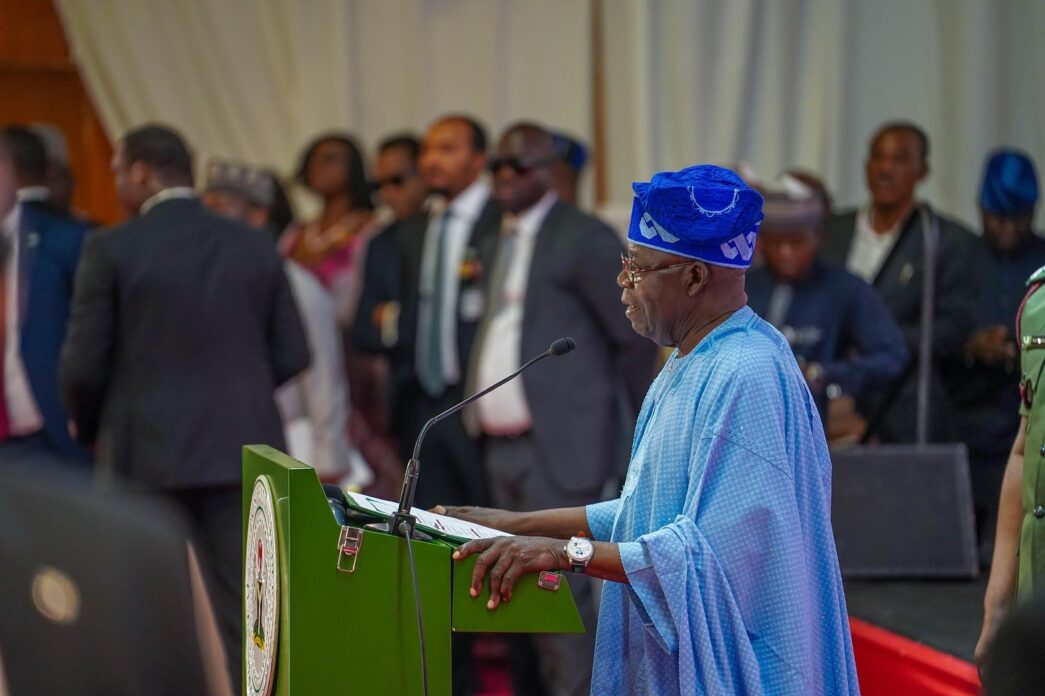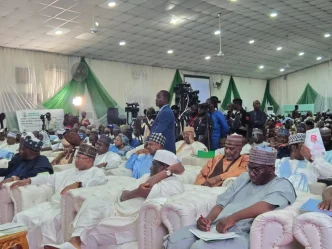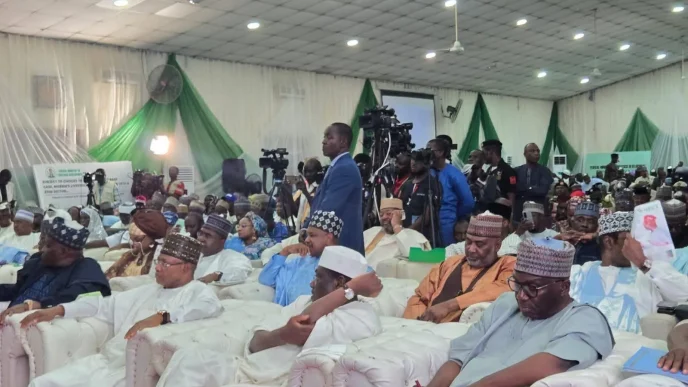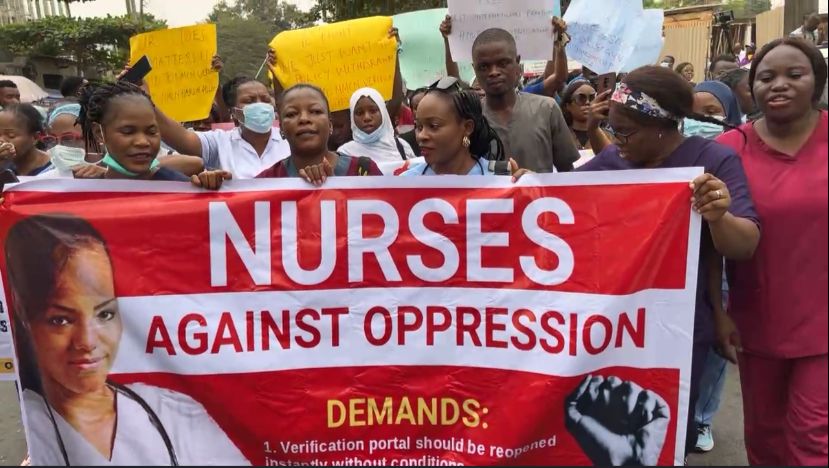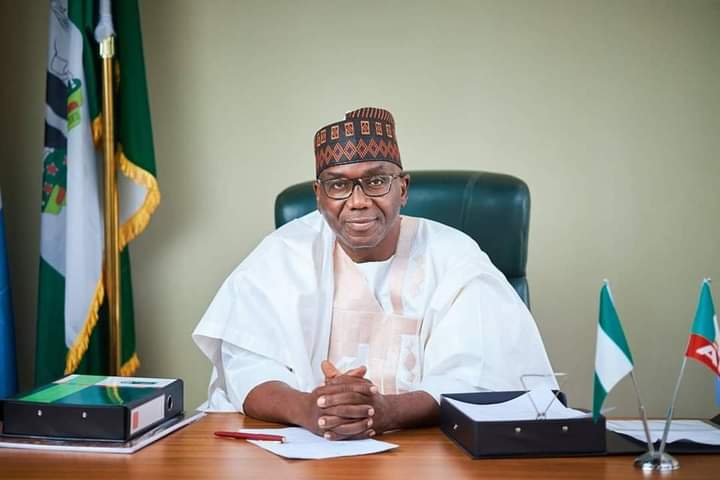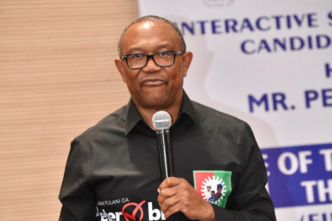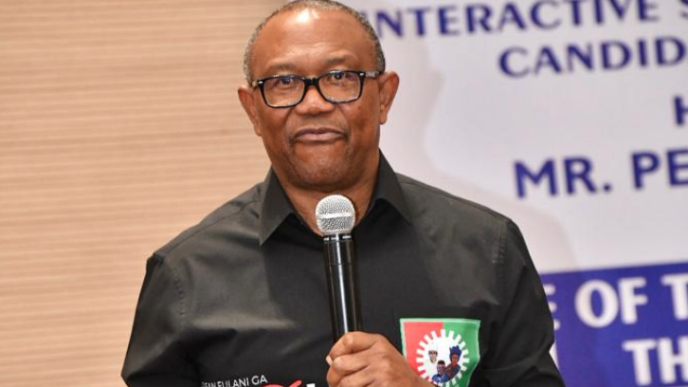BY ABIODUN SHOMOYE
President Tinubu finds himself at a critical crossroads that exposes the urgent need to interrogate, and perhaps renegotiate, the very foundations of the social contract between the Nigerian government and its citizens.
For years, the fuel subsidy, though economically flawed and often mismanaged, was perceived as the most visible and tangible benefit the average Nigerian received from the state. Its removal, while arguably necessary for long-term fiscal stability, has inadvertently stripped away what many saw as the last standing remnant of that contract. For countless Nigerians, it wasn’t just a policy; it was a lifeline.
There is a thin, often fragile, line between what citizens can endure and what they expect in return for their loyalty and patience. When that balance is upset, especially without immediate and visible alternatives, disillusionment follows. Nigerians are not averse to sacrifice, but there must be a corresponding sense of purpose. There must be a visible and felt effort from leadership to share the burden and provide hope.
Advertisement
In the absence of this, people become vulnerable, and understandably so. They are drawn to any voice that seems to speak their pain, no matter how crude, divisive, or simplistic. This vacuum should ordinarily make the work of the opposition easier, but sadly, they have proven to be more disconnected and denser than ever. Ironically, if I were in government, I might quietly pray for such a weak opposition. But that, too, is dangerous for democracy.
Still, the core question remains valid: What is the Nigerian government’s new social offering in the wake of subsidy removal? The presidency must not retreat from this conversation. Instead, it must work to redefine and optimise the citizen contract in a way that ensures both fiscal solvency today and economic sustainability for future generations. The presidency shouldn’t stop at transferring the burden to the governors. That the governors now receive more allocations doesn’t mean they understand what to use the allocations for. There must be calculated efforts by the government across the board to ensure the increased funds are distributed to address issues arising from the unseen impacts of these reforms.
True reform must be about more than shifting numbers on a spreadsheet. It must translate into improved access to education, affordable healthcare, functional infrastructure, and meaningful employment. These are not luxuries — they are the bare minimum for a decent life. And if we cannot offer them, then we must ask ourselves what governance truly means.
Advertisement
Economic reform without human impact is hollow. True progress demands that we match fiscal discipline with social justice, ensuring that no Nigerian is left behind in the name of restructuring. The government must therefore present a clear, actionable, and inclusive path forward, one that does not just tighten budgets, but also expands opportunity, empowers communities, and restores hope.
We may have ended the fuel subsidy.
We must end poverty.
We must end stagnation.
We must end hunger.
We must end hopelessness.
And, as a matter of urgency, we must restore dignity to the lives of ordinary Nigerians.
This moment calls not just for austerity, but for imagination. It requires a bold rethinking of how the state can still be present, fair, and responsive — even in the absence of legacy subsidies. Creative approaches to public welfare, local enterprise development, and community-led initiatives can become the bridge between economic theory and lived experience.
Maybe this role belongs more to the opposition — to challenge, to question, to demand. Maybe it shouldn’t always fall on social commentators or citizens like us, who occasionally step into that space out of necessity rather than design. Considering political leanings, it may not also be a comfortable position to occupy for some of us — I’m not entirely sure. But what is clear, and painfully so, is that much more needs to be done.
Advertisement
The government cannot afford to appear indifferent, sluggish, or asleep at the wheel — especially when, in towns and villages across the country, people are beginning to say, “Our past was better than our present.” That is not the life anyone hoped for. It is not the future anyone dreamed of. And it should not be the reality of any Nigerian.
It is worth stating clearly that this is not an emotional outburst, nor is it an attempt to trade blame. Though, to be fair, holding leaders accountable is never out of place. Rather, this is a call — a wake-up call — to those entrusted with the responsibility of managing our collective resources. It is a reminder that this is not just about numbers on a balance sheet. It is about people. It is about livelihoods.
It is about fathers who can no longer provide.
Mothers who carry silent burdens.
Children who are growing up too fast — and still, too hungry.
It is about the erosion of dignity — the slow, painful loss of the basic right to live with hope.
Advertisement
And all of this brings us back to the heart of the matter: the social contract. Economic and institutional reforms must work together, not in conflict. The idea that one must be sacrificed for the other is not only inconsiderate; it is absurd. Especially in an economy as vulnerable and unequal as ours.
For a country with over 130 million people living in multidimensional poverty, the argument for complete subsidy removal without a comprehensive social cushioning mechanism lacks empathy. It also lacks strategic depth. If reform is inevitable, so too must be meaningful relief and investment in people’s well-being. We cannot continue to rely on hope as a policy instrument.
Advertisement
As Franklin D. Roosevelt once said, “The test of our progress is not whether we add more to the abundance of those who have much; it is whether we provide enough for those who have little.” That quote is as relevant today in Nigeria as it was in 1937 America.
Today, the metrics may look good on paper. The already privileged may be growing wealthier. But now is the time to step in to respond, to redistribute, and to ensure that we do not build a society where policies enrich the few while impoverishing the many. A nation where economic reform benefits only the top percentile is one on a path to deeper inequality and growing unrest.
Advertisement
Beyond slogans and policy memos, leadership must be seen and felt in homes, on streets, in markets, and in schools. We need an active state — one that is both fiscally responsible and socially responsive. Otherwise, we risk building a nation that balances its books but bankrupts its people.
We cannot afford to govern as though numbers matter more than people. Reform must be human-centred, or it will ultimately fail its purpose. Because at the end of the day, governance is not just about what is sustainable — it’s about what is just.
Advertisement
Abiodun Shomoye can be contacted via [email protected]
Views expressed by contributors are strictly personal and not of TheCable.

